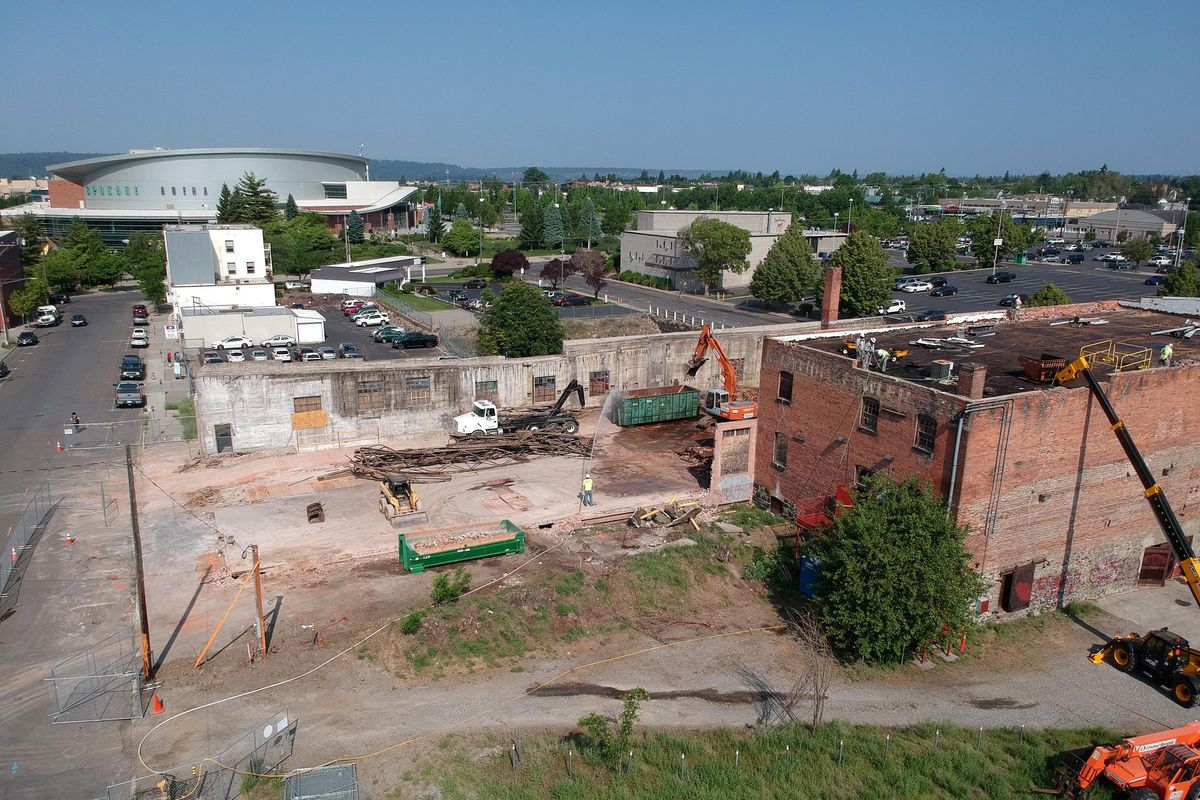City set to close and change roads to make room for new Sportsplex along north bank

When it’s built, the Spokane Regional Sportsplex is expected to host top-tier athletic tournaments and draw 20,000 visitors to the city every year.
But long before sprinters hit the track, the city has to close a road.
On Monday, the Spokane City Council approved the partial closure of Cataldo Avenue and a narrowing of Dean Avenue between Washington and Howard streets, clearing the way for the incoming Sportsplex, which is expected to open in 2021 on the north bank of the Spokane River.
The massive new sports facility will be built atop Cataldo Avenue, closing it to traffic. The facility’s entrance will be on the south side of Dean Avenue.
Dean Avenue will effectively transform into a drop-off zone and entry point for the Sportsplex, with improvements aimed at making the area better for pedestrians and public transit. The road will remain open to cars but narrowed by 10 feet.
The long list of amenities at the future sports complex – which includes a 200-meter, six-lane indoor hydraulic banked track and more than a dozen volleyball courts – adds up to a 180,000-square-foot building.
The closure of Cataldo and changes to Dean were adopted by the council after a two-part public hearing that began earlier this month.
Councilwoman Kate Burke was the lone vote against the proposal. She voiced strong opposition to the entire Sportsplex proposal as a “backwards approach to our economic challenges.”
She advocated that investment be made toward benefiting “the real people in need,” not “giving property away to things that aren’t going to benefit our community as a whole.”
Other council members agreed with Burke’s call for more investment to address issues like housing, but disagreed with her assessment of the Sportsplex.
Councilwoman Candace Mumm said the facility would provide an economic boost.
“This is a great win-win and I think the positive economic benefit will help Spokane overall,” Mumm said
Though it will be marketed as a host for larger tournaments on weekends, the Sportsplex will be available to the city’s parks and recreation department during the week, Councilman Breean Beggs said.
Car counts on Cataldo add up to 1,700 to 2,200 trips per day on weekdays, and slightly less on the weekends, according to the city. Dean averages about 500 trips per day. The partial closure of Cataldo is expected to push more traffic onto Dean.
The plans first called for all of Cataldo to be closed between Washington and Howard streets, but the proposal was amended due to access-related concerns aired by the owner of the nearby Broadview Dairy building. Now, the easternmost 166 feet of Cataldo, up to where it connects with Washington Street, will remain open.
In recognition of the effect Cataldo’s closure would have on the neighborhood’s bike use, Beggs introduced a separate resolution on Monday establishing Boone Avenue as a bike route from Howard Street to the Gonzaga University campus.
The resolution passed unanimously.
The Sportsplex will be owned and operated by the Spokane Public Facilities District, which also owns the Spokane Veterans Memorial Arena, the INB Performing Arts Center and the Spokane Convention Center.
Though initially projected to cost $42 million to build, the project has now grown to between $52 million and $53 million, largely due to rising construction costs, according to officials.